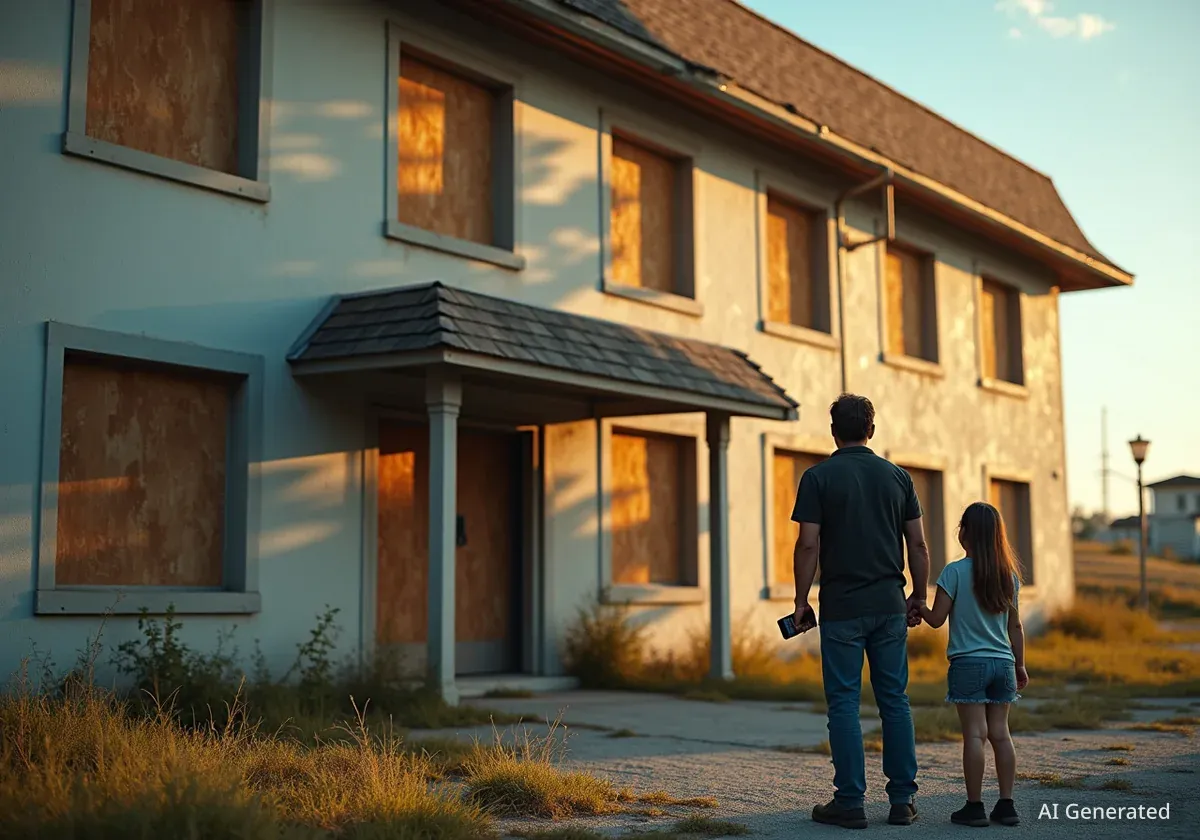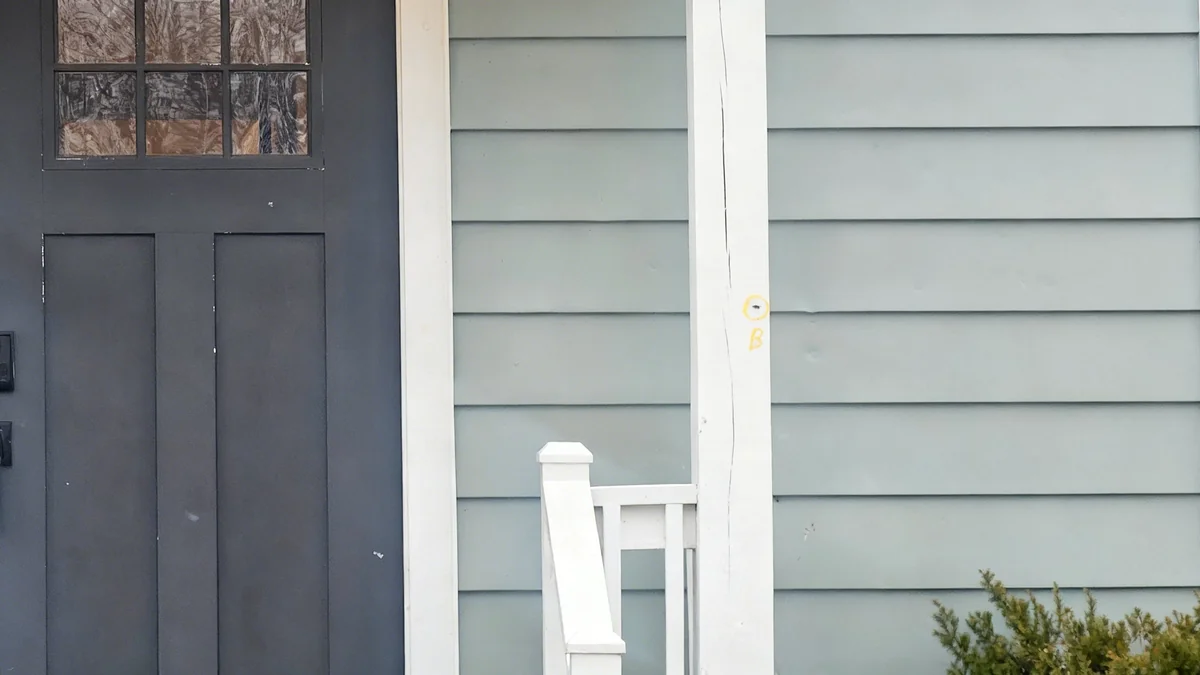A family traveling to the Outer Banks for a vacation faced an unexpected problem: their pre-booked hotel was permanently closed. Brian Sexton and his family arrived in Kill Devil Hills, North Carolina, only to find the property shut down, despite having a confirmed reservation through Booking.com.
This incident led to immediate frustration for the family and a prolonged effort to secure a refund for the $1,200 paid for the reservation. The situation highlights challenges consumers can face when third-party booking platforms do not have current information from properties.
Key Takeaways
- Brian Sexton and his family found their booked hotel in Kill Devil Hills, NC, closed upon arrival.
- The reservation was made through Booking.com for $1,200.
- Sexton initially struggled to get a refund from Booking.com, which cited a lack of notification from the property.
- A local investigative reporter helped escalate the issue.
- Sexton eventually received a full refund after his credit card company ruled in his favor.
Arrival and Discovery of Closure
Brian Sexton and his family embarked on their planned trip to Kill Devil Hills. They had reserved a hotel room through Booking.com, expecting a smooth check-in process upon their arrival. However, their vacation began with a significant setback.
When they reached the hotel property, they found it was not operational. Instead of a welcoming lobby, they saw garbage trucks in the parking lot. The entrance gate was locked, and a "No Trespassing" sign was clearly visible. This indicated the hotel was not open for business.
"I was confused. I was like, there's no way. How are we going to find a place? I was so angry. I was upset," Sexton stated, describing his initial reaction to the discovery.
A quick online search confirmed the hotel had permanently closed. This left the family without accommodation late in the evening.
Quick Facts
- Location: Kill Devil Hills, Outer Banks, North Carolina
- Booking Platform: Booking.com
- Reservation Cost: $1,200
- Time of Discovery: Approximately 8:30 PM - 9:00 PM
Initial Attempts for Resolution
Facing a closed hotel, Sexton immediately tried to contact Booking.com. It was late at night, around 8:30 or 9:00 PM, and he reported that no customer service representatives were available to answer his calls. This lack of immediate support added to the family's stress.
Unable to reach Booking.com, Sexton took an alternative step. He disputed the charge with his credit card company. This action was taken to protect his funds given the unexpected situation.
Despite the challenge, Sexton managed to find another hotel for his family that night. This allowed them to have a place to stay, but the issue of the $1,200 refund remained unresolved. The initial booking experience had significantly disrupted their travel plans.
Communication with Booking.com
Sexton continued to pursue a refund from Booking.com. He explained that the company initially denied his request. Their reason was that he had not checked in to the property. Sexton countered this by explaining he could not check in because the hotel was closed.
He sent multiple emails to Booking.com. According to Sexton, each response he received was similar. The company stated it was waiting to hear back from the property itself regarding the closure. This cycle of communication did not lead to a resolution.
After several attempts with the same outcome, Sexton decided to seek outside help. He reached out to Diane Wilson, an investigative reporter for a sister station, WTVD.
Consumer Rights and Third-Party Bookings
When booking travel through third-party platforms like Booking.com, consumers rely on these platforms to provide accurate information. If a property closes without notifying the booking site, it can create significant problems for travelers. Consumers often have rights under credit card chargeback policies if services are not rendered as promised.
Intervention and Resolution
Diane Wilson, the investigative reporter, contacted Booking.com on Sexton's behalf. This intervention prompted a direct response from the company. A Booking.com representative provided a statement to Wilson.
The statement confirmed that their Customer Service team had investigated the matter. They acknowledged that the accommodation had not informed them of its closure. This failure to notify led to the listing remaining active on their platform for a brief period. The listing has since been removed.
Booking.com also noted Sexton's chargeback action through his bank. They stated this action prevented them from issuing a direct refund at that time. However, they confirmed their customer service team had contacted Sexton to explain the next steps. They also remained available if he chose to cancel his bank dispute and proceed with their resolution.
The involvement of a reporter often helps to accelerate resolutions in complex customer service cases. It brings public attention to issues that might otherwise remain stuck in standard complaint processes.
Final Outcome for Brian Sexton
Despite Booking.com's offer, Sexton continued with his credit card dispute. After some time, his credit card company ruled in his favor. This decision led to Sexton receiving a full refund for the $1,200 he paid for the closed hotel reservation.
This case serves as an example of how consumers can navigate difficult situations involving third-party booking sites and unexpected property closures. It also highlights the importance of consumer protection mechanisms, such as credit card chargebacks, when direct resolution proves challenging.
Lessons for Travelers
This incident offers several lessons for people planning trips, especially when using online booking services. It is important to confirm hotel status before travel, particularly for properties that might be smaller or in less frequented areas.
- Verify Bookings: Consider calling the hotel directly a few days before arrival to confirm the reservation and the property's operational status.
- Document Everything: Keep records of all communications, booking confirmations, and any evidence of property closure.
- Understand Chargeback Rights: Familiarize yourself with your credit card company's policies regarding chargebacks for services not received.
- Seek Assistance: If direct communication with a booking platform is unproductive, consider reaching out to consumer protection agencies or media outlets.
The travel industry relies on accurate information. When information is outdated, it can lead to significant inconvenience and financial strain for travelers. This situation underscores the need for booking platforms to maintain current data on the properties they list.
Consumer Protection Tips
- Always check recent reviews for hotel closures.
- Keep copies of all booking receipts and communications.
- Know your credit card company's dispute process.
The resolution for Brian Sexton's family provides a positive outcome to a stressful travel experience. It also emphasizes the power of persistence and external intervention in resolving consumer disputes within the travel sector.





